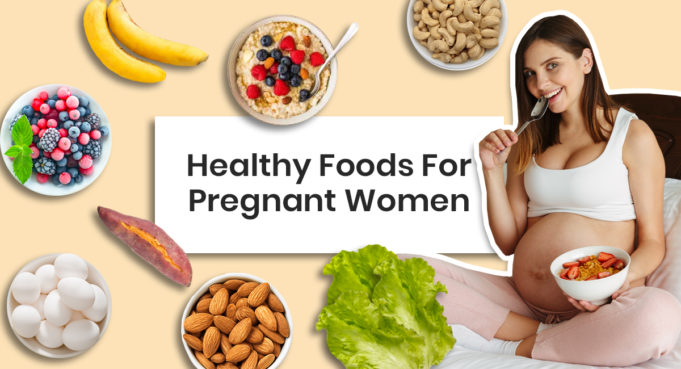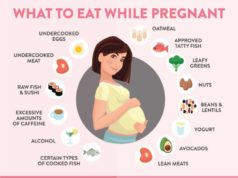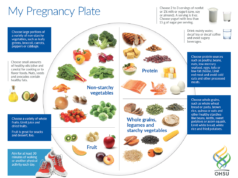A healthy and balanced diet is crucial for pregnant women to ensure they get the necessary nutrients for the growth and development of their fetus. Here are some general guidelines for a healthy pregnancy diet:
- Eat various foods: Include a wide range of fruits, vegetables, whole grains, lean protein, and low-fat dairy products.
- Choose nutrient-dense foods: Opt for foods high in nutrients but low in calories, such as fruits, vegetables, and whole grains.
- Get enough protein: Pregnant women need more protein than non-pregnant women to support the growth of their babies. Good protein sources include lean meats, poultry, fish, beans, lentils, and tofu.
- Eat iron-rich foods: Iron is essential for making red blood cells, which carry oxygen throughout your body. Good sources of iron include lean red meat, poultry, fish, beans, lentils, and fortified cereals.
- Consume calcium-rich foods: Calcium is essential for building strong bones and teeth. Good sources of calcium include dairy products, leafy green vegetables, and fortified cereals.
- Enough folic acid: Folic acid is important for developing the neural tube, forming the baby’s brain and spinal cord. Good sources of folic acid include fortified cereals, leafy green vegetables, and beans.
- Avoid certain foods: Pregnant women should avoid raw or undercooked meat, fish, and eggs, as well as unpasteurized dairy products and soft cheeses. They should also limit their intake of caffeine, alcohol, and processed foods.
ALSO READ:
Most Extreme and Crazy Ways to Lose Weight
It’s important to talk to your doctor or a registered dietitian for personalized advice on your pregnancy diet. They can help you develop a meal plan that meets your needs and preferences.
List of Food Good for The Pregnant Woman
Here is a list of nutrient-dense foods that are beneficial for pregnant women:
- Fruits and vegetables: Fresh fruits and vegetables are a great source of vitamins, minerals, and fiber. They are also low in calories and high in antioxidants. Aim for various colorful produce, such as leafy greens, berries, citrus fruits, melons, carrots, and sweet potatoes.
- Lean protein: Lean protein sources, such as chicken, fish, lean beef, pork, and legumes (beans, lentils, and peas), are important for fetal growth and development. They are also rich in iron, zinc, and B vitamins.
- Dairy products: Dairy products, such as milk, cheese, and yogurt, are rich in calcium, vitamin D, and protein. They are essential for building strong bones and teeth in the growing baby.
- Whole grains: Whole grains, such as brown rice, quinoa, oatmeal, and whole wheat bread, are a good source of fiber, vitamins, and minerals. They also help to regulate blood sugar levels and prevent constipation.
- Healthy fats: Healthy fats, such as those found in nuts, seeds, avocados, and fatty fish (salmon, tuna, and sardines), are important for fetal brain and eye development. They also help to regulate hormones and reduce inflammation.
- Eggs: Eggs are a good source of protein, choline, and vitamins D and B12. Choline is essential for fetal brain development, and vitamin D helps to build strong bones.
- Iron-rich foods: Iron is essential for making red blood cells, which carry oxygen throughout the body. Good sources of iron include lean red meat, poultry, fish, beans, lentils, and fortified cereals.
Remember to talk to your doctor or a registered dietitian for personalized advice on your pregnancy diet. They can help you develop a meal plan that meets your needs and preferences.























